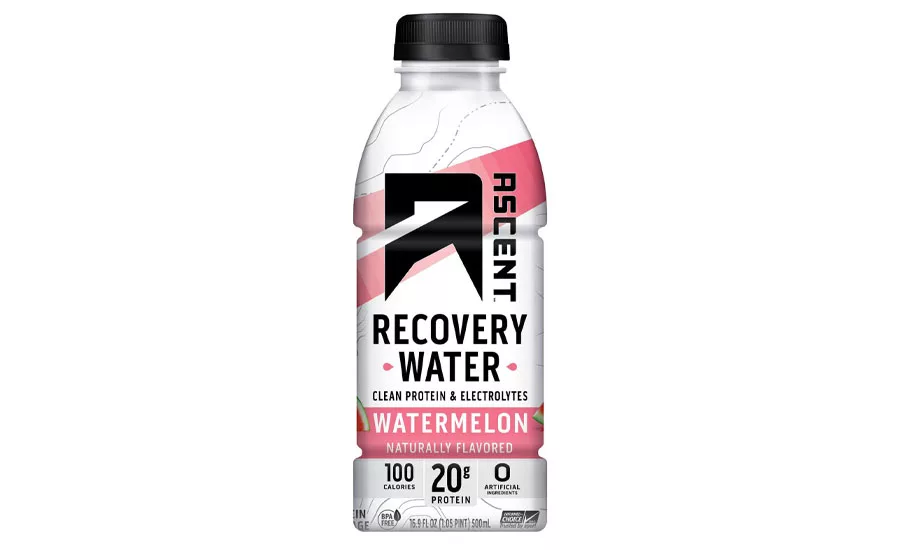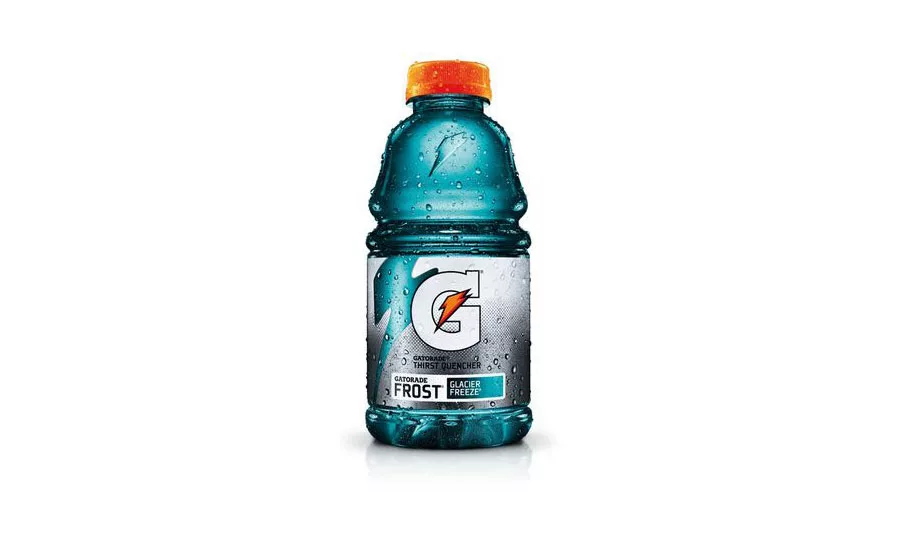2020 State of the Beverage Industry: Functional sports, protein drinks growth continues
Consumers demand convenient hydration, muscle-recovery


As consumers’ focus on nutrition increases, the beverage market is booming with functional beverages catering to sports recovery, and convenient protein/nutrition beverages. According to data from Chicago-based Information Resources Inc. (IRI), non-aseptic sports drinks generated sales just north of $7 billion in U.S. multi-outlets and convenience stores for the 52 weeks ending May 17, an increase of 7.7 percent over the prior-year.
"Sports drinks are running a marathon, not a sprint,” said Madelyn Franz, research analyst of cross-category for Chicago-based Mintel, in the May issue of Beverage Industry. “Sales have been growing, but pretty gradually, and that’s probably going to continue to be the case over the next few years. The better-for-you drink market is crowded, which isn’t doing the category any favors. That said, it’s holding its own with more natural/clean label launches and new sugar-free formulas.”
For many years, the sports drink market had a consistent message of carbohydrates and electrolytes, but the emergence of BodyArmor as the first viable ‘third’ brand in the market in a long time has shifted the focus to more natural ingredients, such as coconut water, and eschewing of artificial colors etc.,” said Roger Dilworth, senior analyst at Beverage Marketing Corporation (BMC), New York, in the same article, Janie Page, senior director of marketing and new business development at St. Louis-based Beck Flavors, noted that health and wellness trends have consumers seeking healthier drink options, giving rise to new beverage innovations. “Products that boost performance but are low in sugar and full of flavor are driving interest and growth in the category,” she explained. “There is a strong demand for added functional beverages that address lifestyle issues like fatigue and stress. We have seen an increase in complex flavors along with alternative energy additives including green tea, guarana, matcha, electrolytes and ginseng.”
Gatorade, a brand of Purchase, N.Y.-based PepsiCo, continues to dominate the market, despite deceleration of its Performance, Frost, and G2 Perform lineups. However, the no sugar, 5-calorie Gatorade Zero saw sales climb 202 percent to $703 million in multi-outlets for the 52 weeks ending May 17, IRI data reports. When it comes to market share, Gatorade is followed by the Atlanta-based The Coca-Cola Co.’s Powerade lineup, and BodyArmor, a brand of BA Sports Nutrition LLC, Whitestone, N.Y.
(Individual brands)
| DOLLAR SALES | % CHANGE VS. PRIOR YEAR | MARKET SHARE | % CHANGE VS. PRIOR YEAR | |
| Gatorade Performance | $1,751,873,037 | -5.3 | 24.66 | -3.36 |
| Gatorade | $1,071,843,026 | 14 | 15.08 | 0.84 |
| Gatorade Frost | $749,643,258 | -12.8 | 10.55 | -2.48 |
| Gatorade Zero | $703,816,802 | 202.1 | 9.91 | 6.37 |
| Powerade ION4 | $612,695,517 | -18.5 | 8.62 | -2.77 |
| Category total* | $7,0105,396,084 | 7.7 | 100 | --- |
*Includes brands not listed.
Source: Information Resources Inc. (IRI), Chicago. Total U.S. supermarkets, drug stores, gas and convenience stores, mass merchandisers, military commissaries, and select club and dollar retail chains for the 52 weeks ending May 17.
In the May Beverage Industry, BMC’s Dilworth commented: “BodyArmor has grown the fastest, which of course prompted The Coca-Cola Co. to acquire a minority of BodyArmor and is likely to acquire 100 percent eventually. The surge in BodyArmor has forced Gatorade to innovate with zero-calorie, organic and natural formulations, to good success in some cases.”
Mintel’s Franz suggested that Powerade’s recently revamped product line could help set them apart from the other sports drinks available. “They redesigned their ION4 packaging and added two new drinks: a sports drink with creatine (intended for high-intensity athletes) and a functional flavored water with added electrolytes,” she said.
Based on IRI data, the $103 million sports drink mixes sub-segment generated a 17 percent uptick in the 52 weeks ending May 17.
(Brand family)
| DOLLAR SALES | % CHANGE VS. PRIOR YEAR | MARKET SHARE | % CHANGE VS. PRIOR YEAR | |
| Gatorade Perform | $46,535,830 | 0.8 | 45.1 | -7.26 |
| Propel | $33,645,359 | 28.1 | 32.6 | 2.82 |
| Nuun | $7,786,583 | 76.7 | 7.5 | 2.55 |
| Liquid I.V. | $6,055,298 | 216.6 | 5.9 | 3.7 |
| Private label | $5,904,256 | 5.1 | 5.7 | -0.65 |
| Category total* | $103,219,313 | 17 | 100 | --- |
*Includes brands not listed.
Source: Information Resources Inc. (IRI), Chicago. Total U.S. supermarkets, drug stores, gas and convenience stores, mass merchandisers, military commissaries, and select club and dollar retail chains for the 52 weeks ending May 17.
Jacqueline Hiner, analyst for New York-based IBISWorld, suggested that sports drinks with fewer artificial additives will increase their ability to compete with water. “Sports drinks are expected to continue to grow in popularity, particularly for more natural energy drinks,” she said.
Protein also is being consumed in powders and ready-to-drink (RTD) sports beverages, meal replacements and more. The $4 billion category grew 3.7 percent in the 52 weeks ending May 17, IRI data states.
Hyderabad, India-based Mordor Intelligence’s report, “United States Recovery Drinks Market Trends and Forecasts (2020 - 2025)” states that the global sports/recovery drinks market is expected to register a compound annual growth rate (CAGR) of 6.2 percent between 2018 and 2023. In addition to sports drinks, RTD protein drinks, ready-to-mix powders and products to control weight are experiencing modest growth in the market.
Premier Protein, a brand of Kings Mountain, N.C.-based Premier Nutrition, leads the category, followed by private-label brands, Ensure and PediaSure (both produced by Abbott Park, Ill.-based Abbott Laboratories), and Muscle Milk (produced by Cytosport Inc., Walnut Creek, Calif.).
(Individual brands)
| DOLLAR SALES | % CHANGE VS. PRIOR YEAR | MARKET SHARE | % CHANGE VS. PRIOR YEAR | |
| Premier Protein | $488,054,661 | 18.1 | 12.2 | 1.49 |
| Private label | $303,890,265 | 13.1 | 7.6 | 0.63 |
| Ensure | $250,456,283 | 3.4 | 6.2 | -0.02 |
| PediaSure | $229,409,029 | -0.3 | 5.7 | -0.23 |
| Muscle Milk | $221,584,903 | -13.8 | 5.5 | -1.12 |
| Category total* | $4,008,375,269 | 3.7 | 100 | --- |
*Includes brands not listed.
Source: Information Resources Inc. (IRI), Chicago. Total U.S. supermarkets, drug stores, gas and convenience stores, mass merchandisers, military commissaries, and select club and dollar retail chains for the 52 weeks ending May 17.
Mintel’s Franz pointed out that growth in protein drinks hinges on bringing these drinks into the mainstream by focusing on accessibility and flavor. “Core Power and Pure Protein have done really well in the RTD sector offering convenient, high-protein drinks,” she said. “Additionally, Pure Protein has diversified its flavor options. Iconic Protein is another up-and-comer with unique flavors and RTD options. Iconic’s drinks are also better-rounded in their nutritional offerings, and the newest innovations on the way (i.e., kids drinks, caffeinated drinks) will really expand their consumer base.”
For example, Shamrock Farms Dairy Division, Phoenix, launched Rockin' Protein Plus, a 12-ounce ready-to-drink beverage that combines the benefits of protein and superfruits with Shamrock Farms milk. With no added sugars and 20 grams of protein, Rockin’ Protein Plus is a lactose-free protein drink available in two new flavors: Cherry Crème, which features tart cherries, and Blueberry Pomegranate, which blends antioxidants with protein.
Also, health-conscious consumers are prioritizing their search for better-for-your food and drink options with energizing, hydrating and reparative ingredients, according to Mintel’s March “Sports and Performance Drinks US” report.
Looking for a reprint of this article?
From high-res PDFs to custom plaques, order your copy today!






